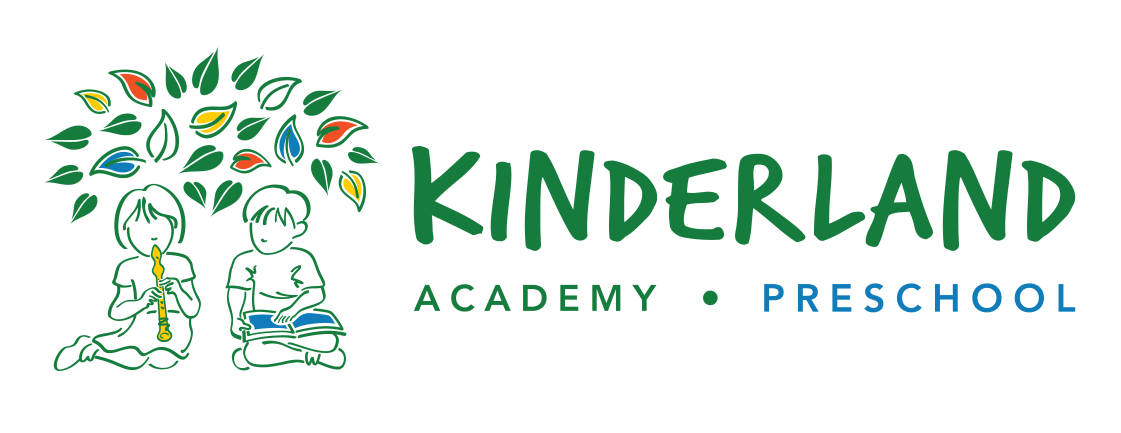Even as Singapore gradually lifts its circuit breaker measures, some parents may still choose to keep their little ones at home. Moreover, social distancing will still need to be observed, with socialising and venturing out kept to a minimum. For preschoolers and young children, this could mean that they miss out on opportunities to socialise, which is an important part of a child’s healthy development.
Dr Carol Loy, Curriculum Director at Kinderland, shares a guide on how parents can help their little ones, across varying ages, to cope with these new social norms.
For babies (infant to 2 years)
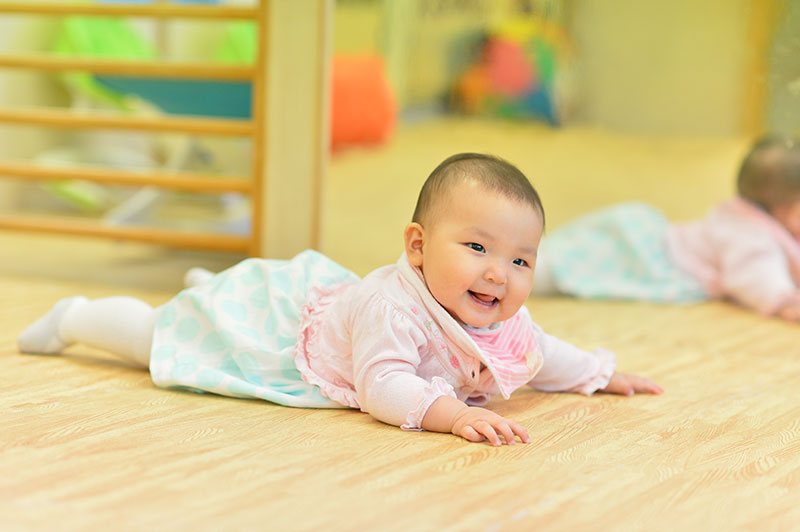
Ensure little ones are meeting their milestones, and continuously reorganise their environment, such as by providing new toys that they can play with or play interactive games with them.
For example, at six months old, a toddler will begin to recognise objects. Parents can ride on their child’s expanding capabilities by getting them to recognise and pick two to three objects that they commonly play as a form of exploration.
A toddler aged between 9 months and 12 months is at the stage of learning how to stand and is building his or her gross motor skills. At Kinderland, standing bars are used to provide aid and guidance to help toddlers strengthen their muscles and standing skills. During this period at home, parents can provide a similar form of support for their toddler, such as having the help of a sturdy low table to give them something to hold on to.
For toddlers (2 years to 4 years)
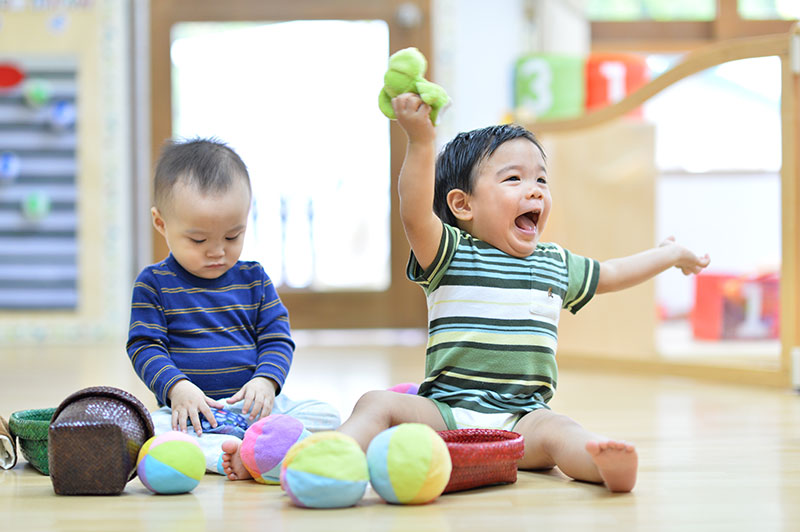
At this age, children may not have sufficient vocabulary to express themselves accurately and may act out through temper tantrums or becoming unlike themselves. Parents can experiment with various communication techniques or check out sensorial activities that they can do with their children. For example, parents can develop a sheet with pictures of objects, and have their child point to what they want, or act out what they want. Reading a book and engaging their child to role-play a character in the story helps them in expressing themselves as well.
Encouraging imaginative play can also help children express emotions or thoughts they are unable to verbally express or are confused about, especially if they are younger, as they may not have the language skills to talk about their emotions yet.
For older children (4 years to 6 years)
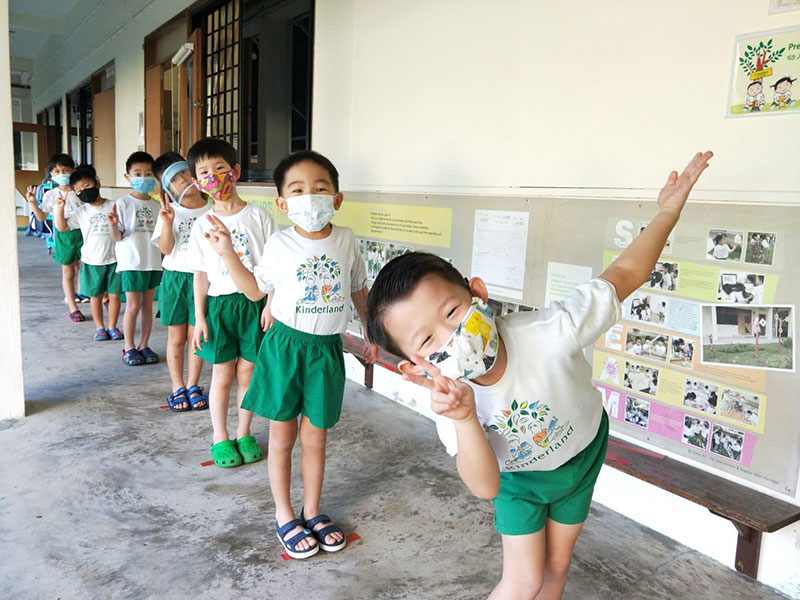
As they grow older, children should be able to express themselves better. Hence, a way to keep them stimulated is to get them to think about how things run at home, for example, how the light turns on with just a switch. Parents can and should also constantly check in with their child to ensure that they understand the current situation and involve them in creating a routine that will provide some semblance of normalcy. Encouraging them to share their feelings or rationale behind doing certain things will help them to express themselves better.
It would not be surprising as well to know that parents have set up schedules for playtime activities, chores and routines for their children to follow. However, parents should also consider this as a perfect opportunity to turn the focus to core family values. Come up with a list of values that suits the family’s needs, and are applicable to everyone in the family, regardless of age. Discuss the list as a family and ensure that the children respond with an example so that they understand what it means. Here are some examples:
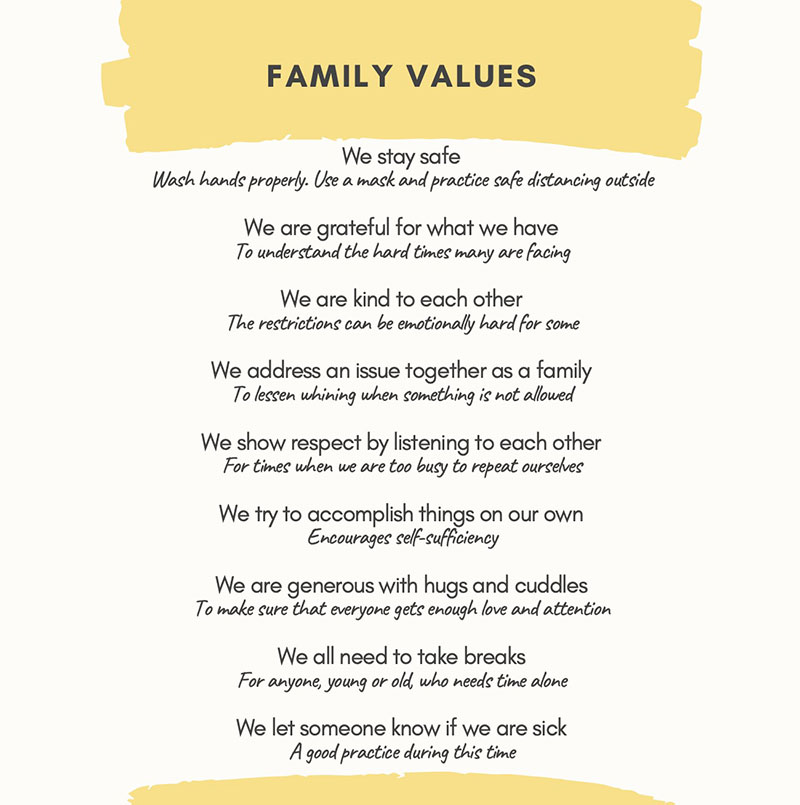
Beating the stay home blues
Younger children may experience emotional distress as they spend more time at home and away from crowds. This change in their lives can be overwhelming due to the limited coping skills that they have.
As children process information over time, they may have a better understanding of the situation after a week or two. Parents should communicate regularly about the current happenings and ask how the child is feeling, even if it seems repetitive.
Therefore, the most important thing would be for parents to consciously try to model a sense of emotional well-being and calmness, even where they are stressed or anxious. As opposed to words, children are more attuned to the actions and body language of the people around them and will pick up cues if their parents are in distress.
